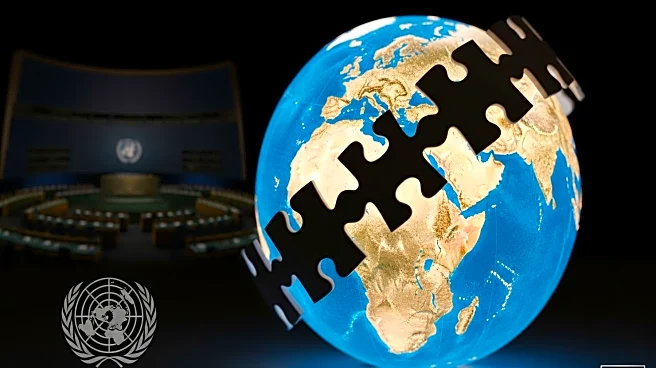What's Happening?
Nonprofits and philanthropic organizations are seeking new partnerships and strategies in response to significant global aid cuts, particularly from the U.S., during the United Nations General Assembly's annual high-level meetings. The Rockefeller Foundation has committed $50 million to upgrade a famine early warning system and diversify its financing. The Clinton Global Initiative and other major philanthropic entities are focusing on engaging with the private sector to address global challenges. Despite the setbacks, nonprofit leaders are emphasizing the importance of collaboration and innovation to continue their work effectively.
Why It's Important?
The reduction in foreign aid from wealthy countries, including the U.S., poses a significant challenge to nonprofits and philanthropic organizations that rely on such funding to address global issues like poverty, health, and climate change. The shift towards private sector partnerships and innovative financing models could redefine how these organizations operate and sustain their efforts. This development highlights the growing role of non-governmental actors in international development and the need for diversified funding sources to ensure stability and impact.
What's Next?
Nonprofits and philanthropic leaders are expected to continue exploring new partnerships and financing models to mitigate the impact of aid cuts. The focus will likely be on leveraging private sector resources and fostering cross-sector collaborations to address pressing global challenges. Organizations may also advocate for increased government support and policy changes to facilitate their work.
Beyond the Headlines
The shift towards private sector engagement raises questions about the ethical implications of relying on corporate partnerships for humanitarian efforts. It also underscores the need for transparency and accountability in these collaborations to ensure that the primary focus remains on the welfare of affected communities.












